Animals
-
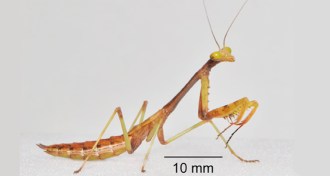 Animals
AnimalsHow a young praying mantis makes a precision leap
Videos of juvenile praying mantises flying through the air reveal how the insects manage to always make a perfect landing.
-
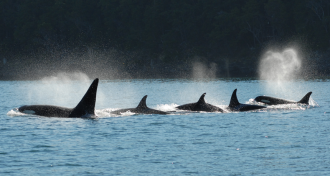 Animals
AnimalsKiller whales follow postmenopausal leaders
Taking the lead on salmon hunts may be postmenopausal killer whales’ way of sharing their ecological knowledge.
By Susan Milius -
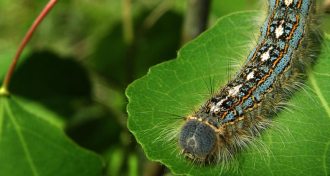 Animals
AnimalsInsects may undermine trees’ ability to store carbon
Insects eat more leaves on trees grown in carbon dioxide-rich environments than those grown without the extra CO2. That may undermine forests as carbon sinks in the future.
-
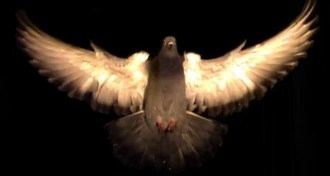 Animals
AnimalsHow pigeons bob and weave through obstacles
When navigating an obstacle course, pigeons weigh energy efficiency against the danger of collision, research finds.
-
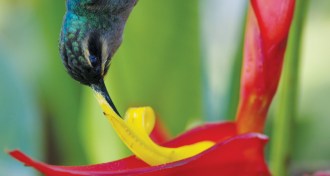 Plants
PlantsTropical plant knows whose bill is in its flowers
A rainforest plant avoids inbreeding by accepting pollen only from hummingbird species that must travel to reach it.
-
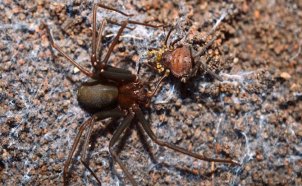 Animals
AnimalsDelicate spider takes down tough prey by attacking weak spots
The Loxosceles gaucho recluse spider can take down a heavily armored harvestman by attacking its weak spots, a new study reveals.
-
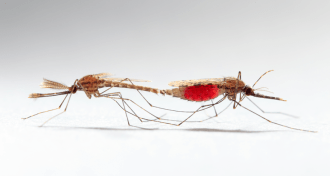 Life
LifeSexual conflict in mosquitoes may have worsened spread of malaria
Sexual conflict in Anopheles mosquitoes may have intensified their power to fuel human malaria.
By Susan Milius -
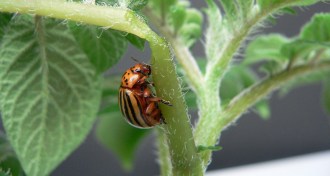 Plants
PlantsBeetle RNA makes crops a noxious meal
When beetles munch plants bearing their RNA, genes the bugs need to survive are turned off.
-
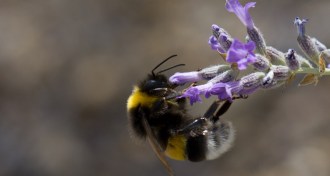 Neuroscience
NeuroscienceBees may merge their flower memories
Bumblebees sometimes prefer fake flowers with the combined patterns and colors of ones seen before, suggesting they merge memories of past experiences.
-
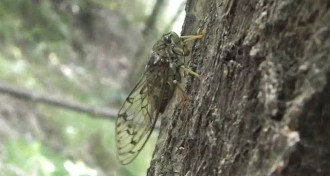 Animals
AnimalsSome cicadas drum up a beat with the help of their wings
By using their wings as drumsticks, so-called “mute” cicadas can make themselves heard.
-
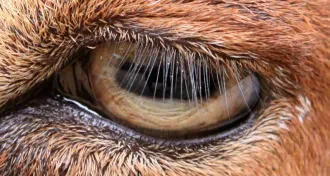 Life
LifeThe eyes have it: Long lashes not so lovely
Eyelashes can’t be too short or too long without ruining their aerodynamic protection.
By Susan Milius -
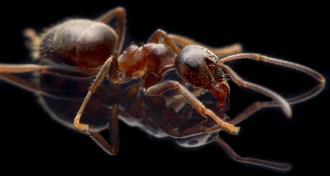 Animals
AnimalsWhere an ant goes when it’s gotta go
Scientists found black garden ants defecating in certain spots inside their nests. The researchers say these spots serve as ant toilets.